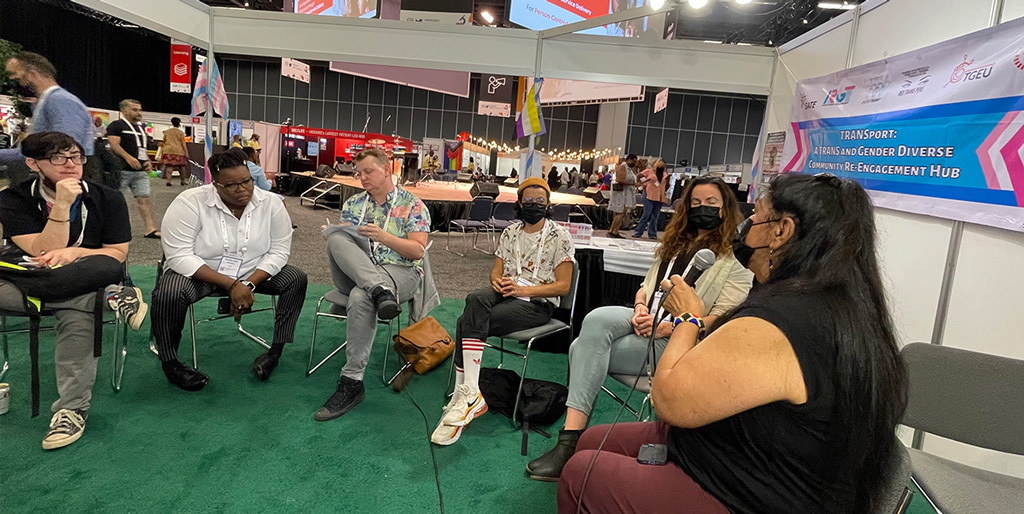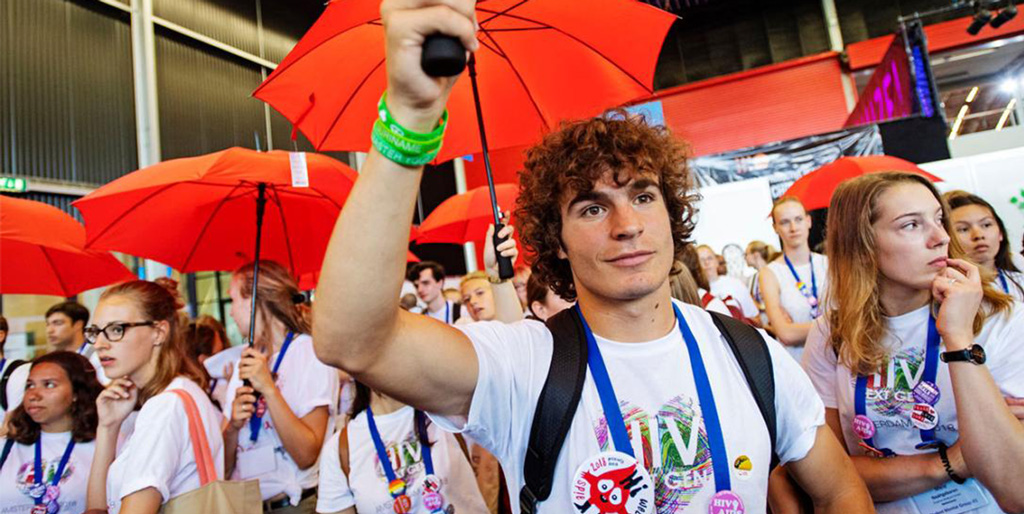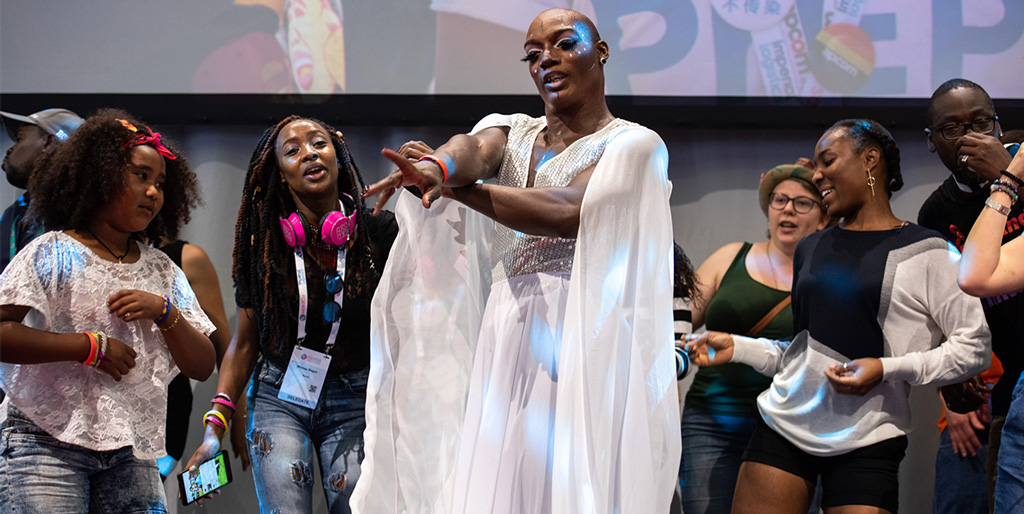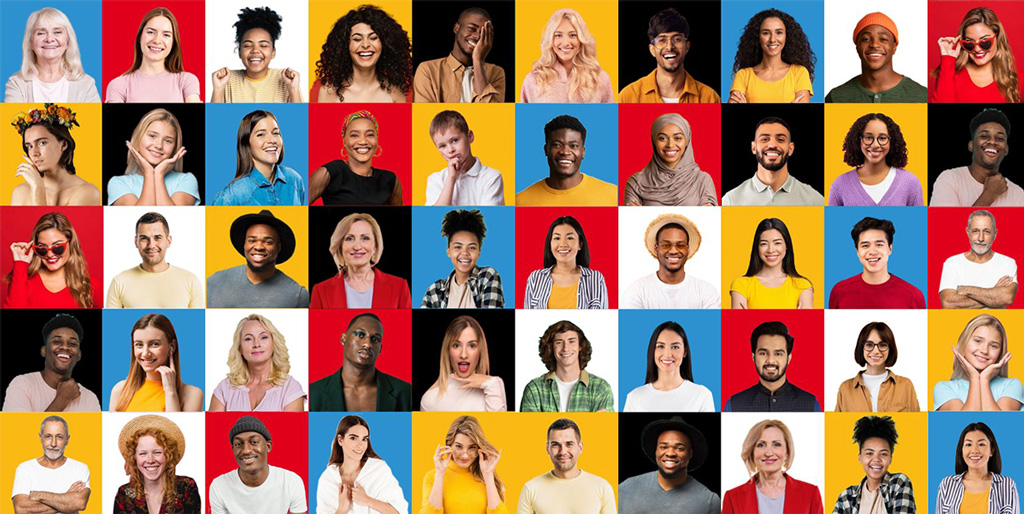“Treatment came to Uzbekistan only in 2006.
It simply didn’t exist when I was born.”
Ahead of of the International AIDS Conference – AIDS 2024, as part of the regional #PutPeopleFirst campaign, VirusOFF meets with leading experts from the Eastern Europe and Central Asia (EECA) region to discuss key aspects where health and human rights come to the fore. These issues not only have a significant impact on the lives of people living with HIV, but also determine the effectiveness of public health policies and programs in the region.
Walls are not the answer. #PutPeopleFirst!
You can learn more about the EECA region and AIDS 2024 at aids2024.virusoff.info and our social networks.
We met Elina Kruglova from Uzbekistan at a training session in Kazakhstan in 2023. The first day we met, a fragile girl with curly hair said: “My name is Elya and I have been living with HIV since birth.” Everyone was astonished at first, and then again when it turned out that Elya had grown up in an orphanage, where her mother had sent her.
Today, Elya, or rather Elina Kruglova, is a student at the Tashkent State Agrarian University, a head girl, an excellent student, and simply a beauty. She has a popular Instagram page, leads support groups for teenagers and young people living with HIV, and dreams of starting her own family. So, Elya told Elena Derjanschi in an interview for VirusOFF how she has done all this and why HIV has not become an obstacle.
Elya, hello!
Hello!
A bird whispered in my ear that you are also flying to Munich for the International Conference AIDS 2024? Is that true?
Yes, I got a scholarship. But now I’m waiting for a visa*, and everything depends on a stamp. I sent my documents on June 28, and so far, there has been silence.
What do you expect from the conference if all goes well?
Of course, I want to meet new people, show myself and then we’ll see how it goes.
Ready to tell your story? Not afraid?
To be honest, not anymore. I recently went on a show where I talked about myself live. Everything went well.
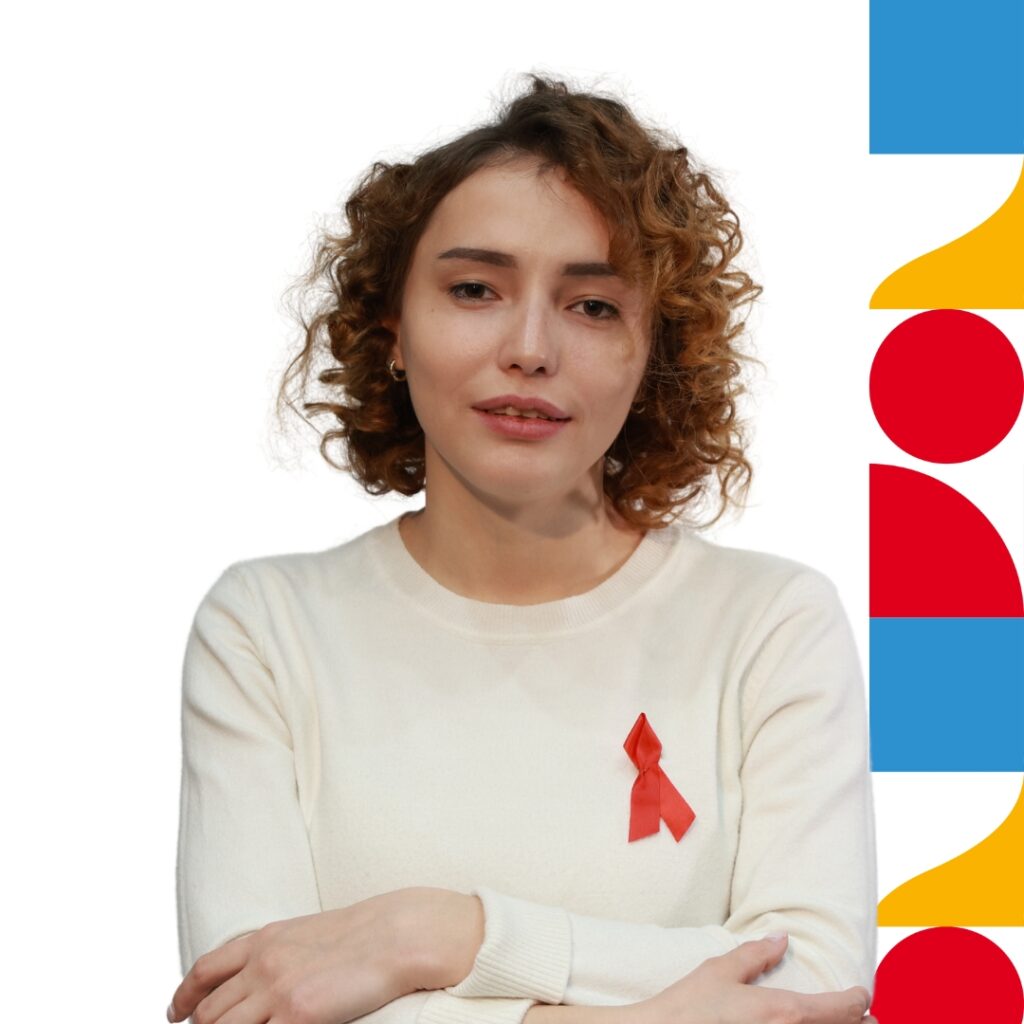
Do people recognize you on the street after such programs?
Yes, of course, they do. Sometimes they say, “Oh, I saw you somewhere.” I’m happy.
The theme of this year’s conference is “Put People First. Why do you think people should come first in the fight against the epidemic?
Because everything that is done is for people. You see, in Uzbekistan some people still don’t know the difference between HIV and AIDS. This is terrible. And unfortunately, you can’t solve the problem of transmission alone.
As long as a person does not change his attitude towards the problem, as long as everything does not fall into place in his head, it is very difficult to do anything.And for that, people need to be told again and again, reminded again and again, and given new approaches, new methods. Training once a year on the first of December does not help – more serious actions are needed. During the program, I mentioned, one of the participants said that people living with HIV should live separately from everyone else. But why? Where does he get this medieval idea?
Are you offended when you hear or read this?
I don’t care, honestly. I have already developed an immunity to it. But there are other people younger than me, there are children, there are teenagers, and for some it can be very offensive.
While you and I were agreeing on an interview, you said that you got a job at the AIDS Center*. What do you do there?
*(AIDS Prevention Center “Republican AIDS Center” – editor’s note)
I am an accountant by profession. Last December I was offered a job and I accepted it. I study at the university until noon and then I go to work. To be honest, some time ago I dreamed of working as an accountant, but the dream came true and I have not yet fully realized whether I like it or not. Time will tell.
You still manage to hold support groups for HIV-positive children from orphanages. Do you?
Yes, sure. It is true that the boys have gone to camp for the summer, but we will resume these meetings in September. We usually come on Fridays, some don’t even go to class because they are waiting for us.
It’s all on a volunteer basis, right?
Of course, it is. I run self-help groups for adolescents and young people living with HIV in two places – in an orphanage and in the HIV department of the clinic of the Virology Research Institute in Tashkent.
The last group was formed in 2011, and since then it has been led by Kamila Fatykhova (social psychologist, coordinator of the Day Care Center for Children and Families Affected by HIV, Tashkent – editor’s note). We have different cases – there are difficult teenagers who refuse to take medication. They can be referred to us for group or individual consultations, we talk to them, explain, try to make the person himself understand why it is important to drink therapy.
Did you ever have the opportunity to participate in support groups?
We didn’t have groups as such, but I remember when I was 8-9 years old, psychologists and social workers would come and take us for a walk. It was so great! I lived in several orphanages and each one had a different attitude. In my first orphanage, we might not get any therapy; we were treated badly there.
Now that orphanage no longer exists, it has been closed down. And that’s probably a good thing. In my last orphanage – we were transferred there in 2019 – there were only two teenagers with HIV: me and another boy. The attitude towards us was very good! The doctors protected us and took care of us.
Do you remember who told you about your HIV?
To be honest, no. It’s like I always knew from a very young age. In general, in the orphanage, everyone knows everything about everyone, and information spreads quickly. Everyone knew about my status. I can’t remember who told me: “When you turn 12, you will die.” And now I’m 12 years old and alive, and it was such happiness!
You know, many psychologists say that it is very difficult for children who are released from orphanages to adjust. Is that true?
Partly yes. I had a case where I had to cross the street, but I was standing there and I couldn’t because I was afraid. Yes, sometimes we could go to the store to buy something, but you can only leave the orphanage with the group. That means you are always under the supervision of the teachers, you cannot decide and act as you want. The state is responsible for you, so the state decides what you will do, where you will go, what you will eat for breakfast.
When you finished school and graduated, was it difficult to adjust to your new independent life?
No. I got a job right away and tried to go to university, but it didn’t work out. And I went back to work. And my work taught me a lot, especially how to communicate with people. I missed that in the orphanage. Now I am a student at the Tashkent State Agrarian University, but I made it.

Elya, you don’t talk about it much, but I’ll ask you anyway, if you allow me. Do you know what happened to your parents?
Yes, a little. When I was 18 years old, I remember going to a social worker and saying that I wanted to find my parents. I remember being told as a child that my mother was alive and that I had her. To be honest, I didn’t really believe it. So when I talked to the social worker at the orphanage, she allowed me to read the personal file, and there was my mother’s home address. And not far from that address lived Kamila Fatykhova, a psychologist who helped me a lot.
She was the first to go there and knock on the door. But my mother was not there, there were neighbors, and the neighbors were shocked that I existed. It turned out that my mother, my grandmother and my brother had lived in that house for many years. So it turns out that I also have a brother who’s two years older than me. But my mother is no longer alive; she died in 2015, before I found her.
Are you in contact with your brother?
Rarely. He has his own family, a little daughter. We communicate by video conference.
What about your father?
He’s alive. And he even knows about me, he saw me on TV, but he doesn’t want to communicate.
You talk about it so calmly. Have you worked it out yet?
I think life goes on, now I can start my family. And of course, I want to be a mother, one day, when my time comes and I meet my soul mate.
Elya, let’s come back to the situation with HIV in your region, I mean in Uzbekistan. Is the situation better now than, say, ten years ago?
Of course, the treatment in Uzbekistan came only in 2006. When I was born, it just wasn’t there, it was 2000. Now treatment is available, it is bought by the state if there is a desire (according to UNDP, as of January 1, 2024, there are 48,658 people living with HIV in the country, of whom 41,090 (or 84.4%) are receiving treatment – approx. ed.).
But when I was little, there was no ARV therapy. People were treated with ordinary drops. Also, we now have a very low level of mother-to-child HIV transmission, but the state and UN agencies have set a goal of reducing it to zero, and I think that is an excellent goal.
If you became president, or worse, minister of health, what would you do to stop the epidemic?
Oh, I don’t even know where to begin. First, I would test the knowledge of all the doctors. Have them all retake the knowledge tests. Three mistakes and you’re fired. Next, you have to deal with alcoholism somehow. Unfortunately, people do incredible things when they cross the line. A lot of bad things happen because of that.
And finally, I would make sure that children are taught from school what HIV is, how the virus is transmitted, and why people with HIV are not contagious. And to inform not only the students but also their parents. We have situations where twenty-year-old patients do not know that they have HIV. The parents are just afraid to tell them. But this is wrong, the child has the right to know his status.
Great plan! I hope it all comes true!
P.S. At the time of this interview published, Elina had not yet received her visa to travel to Germany.
UPD: Elina received her visa today, on July 18.
Text: Elena Derjanschi
Photo: Ruslan Solcan, personal archive of the respondent
Learn more about Eastern Europe and Central Asia at AIDS 2024: aids2024.virusoff.info – or on our main web page: VirusOFF.info
Follow us on social media to keep up with important updates:
Instagram – Virus off
Facebook – Virus Off

